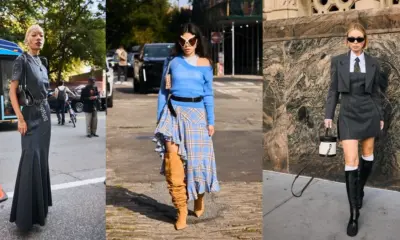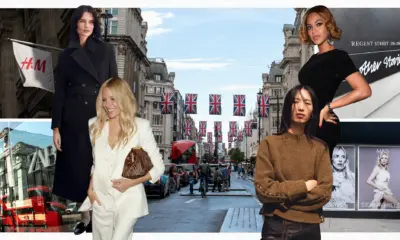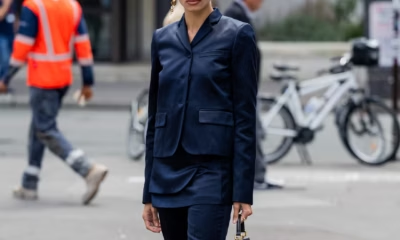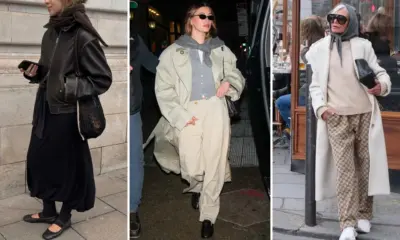Fashion
British Streetwear Boom: Gen-Z Designers Disrupt Global Trends

The British streetwear scene is experiencing an unprecedented boom in 2025, driven largely by a new generation of Gen-Z designers. Analysts from the British Fashion Council (BFC), BBC Culture, and Reuters note that these young creatives are challenging traditional fashion hierarchies, blending urban culture, digital innovation, and sustainable practices. From London’s Shoreditch to Manchester’s Northern Quarter, streetwear brands are redefining global trends, attracting attention from international buyers, investors, and fashion enthusiasts.
Gen-Z Creativity and Cultural Relevance
Gen-Z designers emphasize authenticity, cultural commentary, and digital-native storytelling. Analysts highlight that their collections reflect a blend of music, social movements, and visual arts, resonating with audiences who value identity and self-expression. Unlike previous generations, these designers leverage social media platforms such as Instagram, TikTok, and BeReal to launch campaigns, engage audiences, and cultivate communities around their brands.
This cultural relevance is translating into commercial success. Analysts report that several British streetwear brands have achieved international collaborations, limited-edition drops, and sell-out collections within hours of launch, illustrating the power of digital-first marketing strategies and strong community engagement.
Sustainability and Ethical Practices
Sustainability is central to the Gen-Z streetwear movement. Designers are increasingly adopting eco-friendly fabrics, ethical manufacturing processes, and circular fashion initiatives, reflecting the values of their audience. Analysts from the BFC note that recycled materials, upcycled clothing, and local production are not just marketing tools but core principles that define brand identity and consumer trust.
Transparency in sourcing and production has become a competitive advantage. Blockchain-based tracking, verified supply chains, and traceable materials allow consumers to understand the environmental and social impact of each product. Analysts suggest that these practices enhance brand credibility while aligning with global ESG trends in fashion.
Digital Innovation and Direct-to-Consumer Models
Digital platforms are revolutionizing distribution for British streetwear brands. Gen-Z designers frequently employ direct-to-consumer (DTC) models, bypassing traditional retail and leveraging e-commerce and social media sales channels. Limited-edition drops, NFT-linked collectibles, and virtual fashion experiences are creating hype, exclusivity, and direct engagement with consumers.
Analysts note that AI-driven analytics and social listening tools enable brands to predict trends, manage inventory, and respond to market demand in real-time. This data-centric approach allows emerging designers to scale efficiently while maintaining creative control and brand authenticity.
International Influence and Collaborations
British streetwear designers are increasingly collaborating with global artists, musicians, and brands. Analysts highlight partnerships with international sneakers, luxury fashion houses, and music labels, which provide exposure to new markets and enhance brand equity. These collaborations also enable cross-cultural exchange, merging UK urban aesthetics with international influences, resulting in innovative designs that appeal to a diverse global audience.
Trade shows, pop-up stores, and digital showcases further expand market reach. Analysts report that these events attract international buyers and media attention, cementing London’s reputation as a hub for cutting-edge streetwear and youth-driven fashion innovation.
Economic Impact and Investment Trends
The streetwear boom has attracted domestic and international investment. Analysts from Knight Frank and CBRE report increased venture capital, private equity, and angel funding targeting emerging Gen-Z brands. Investment is focused on scaling operations, technology adoption, marketing, and global expansion.
The economic contribution of streetwear extends beyond sales revenue. Local manufacturing, creative studios, and logistics support services benefit from increased activity, while cultural tourism is boosted by fashion-focused events and brand experiences. Analysts note that the streetwear ecosystem contributes significantly to London’s creative economy, combining cultural and financial impact.
Challenges and Market Considerations
Despite growth, challenges remain. Analysts highlight intense competition, market saturation, and the need for continual innovation as key pressures for emerging brands. Intellectual property protection, supply chain management, and ethical sourcing are also critical considerations for sustaining brand credibility.
Consumer behavior in a digital-first market is volatile; trends shift rapidly, and audience engagement is increasingly driven by viral content. Analysts emphasize that brands must balance authenticity with commercial strategy, leveraging community engagement and innovation to maintain relevance.
Future Outlook: Sustaining the Boom
Looking ahead, British streetwear is expected to maintain momentum in 2025 and beyond. Analysts predict continued growth in Gen-Z-led brands, hybrid physical-digital retail models, and international collaborations. Technology integration, sustainability, and cultural resonance will remain central to success.
Education and mentorship programs are also fostering new talent. Initiatives by the British Fashion Council and creative incubators support emerging designers with funding, training, and networking, ensuring the ecosystem remains dynamic and innovative. Analysts suggest that these efforts will sustain the industry’s creative pipeline and reinforce London as a global streetwear hub.
Conclusion
The British streetwear boom of 2025 demonstrates how Gen-Z designers are reshaping fashion through creativity, sustainability, and digital innovation. By blending cultural relevance with entrepreneurial savvy, these designers are attracting global attention and redefining the UK’s role in the international fashion landscape. Analysts conclude that London’s streetwear scene exemplifies a successful fusion of artistry, technology, and commerce, securing its place as a disruptive force in global fashion trends.






















